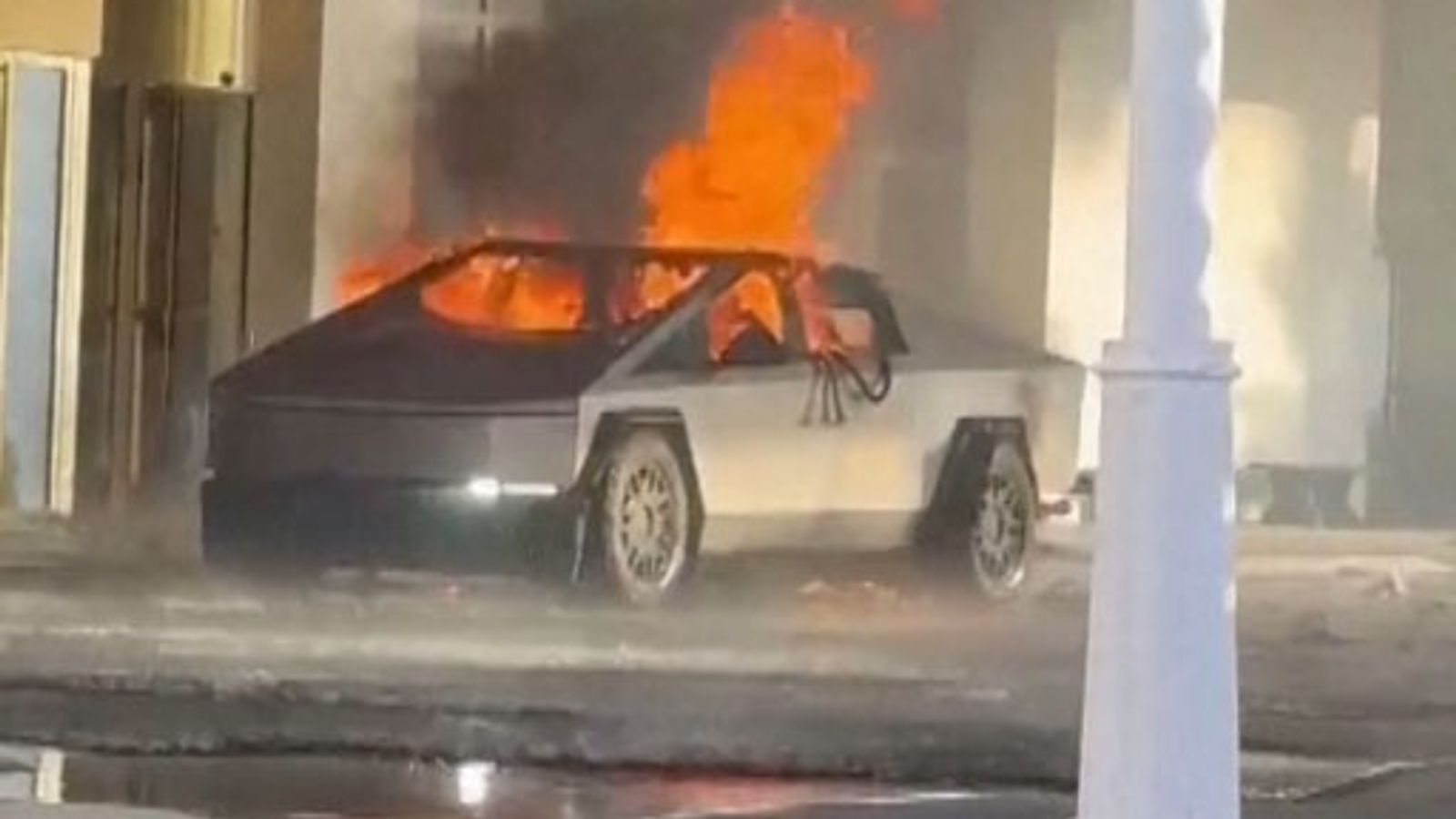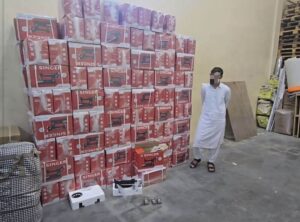Authorities have identified the driver of a Tesla Cybertruck that exploded outside the Trump Hotel in Las Vegas as Matthew Alan Livelsberger, a 37-year-old active-duty U.S. special forces soldier from Colorado Springs, Colorado. Officials stated that Livelsberger died from a self-inflicted gunshot wound before the explosion.
The vehicle, rented over 800 miles away and driven to the hotel on New Year’s Day, was packed with fuel canisters and firework mortars, causing a blast that left seven people with minor injuries. The Clark County Coroner’s Office confirmed Livelsberger’s death as a suicide.
“I’m comfortable calling it a suicide with a bombing that occurred immediately after,” Sheriff McMahill said during Thursday’s press conference.
Las Vegas Sheriff Kevin McMahill revealed that investigators recovered several personal items from the charred Tesla Cybertruck, including a military ID, a passport, two semi-automatic pistols, fireworks, an iPhone, a smartwatch, and multiple credit cards, all belonging to Livelsberger.
The body found inside the vehicle, burned beyond recognition, was determined to have sustained a self-inflicted gunshot wound to the head, McMahill added.
Motive Remains Unknown
Livelsberger drove the rented Tesla Cybertruck to Las Vegas on Wednesday morning, arriving less than two hours before the vehicle detonated, according to police. The Cybertruck, parked near a glass entrance to the Trump Hotel, began smoking before it exploded.
Authorities noted that the Cybertruck’s design helped contain the explosion, directing the blast upward rather than outward. Remarkably, the nearby glass doors and windows of the hotel remained intact.
Investigators are still working to determine a motive for the incident.
No Definitive Link With New Orleans Truck Attack
McMahill highlighted several parallels between the Las Vegas explosion and a New Orleans truck attack that killed 14 people, both occurring on New Year’s Day. While no definitive link has been established, McMahill noted that both suspects previously served at Fort Bragg in North Carolina, though records show they were neither in the same unit nor stationed there simultaneously.
Additionally, both suspects were deployed to Afghanistan in 2009, but there is no evidence they were in the same region or unit during their service. McMahill also pointed out that both incidents involved vehicles rented through the platform Turo.






